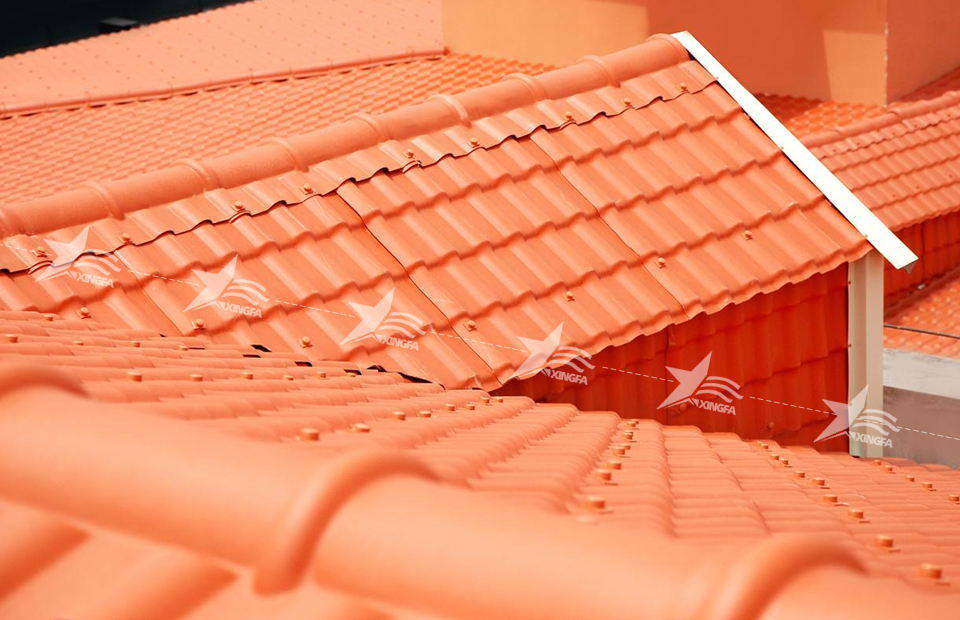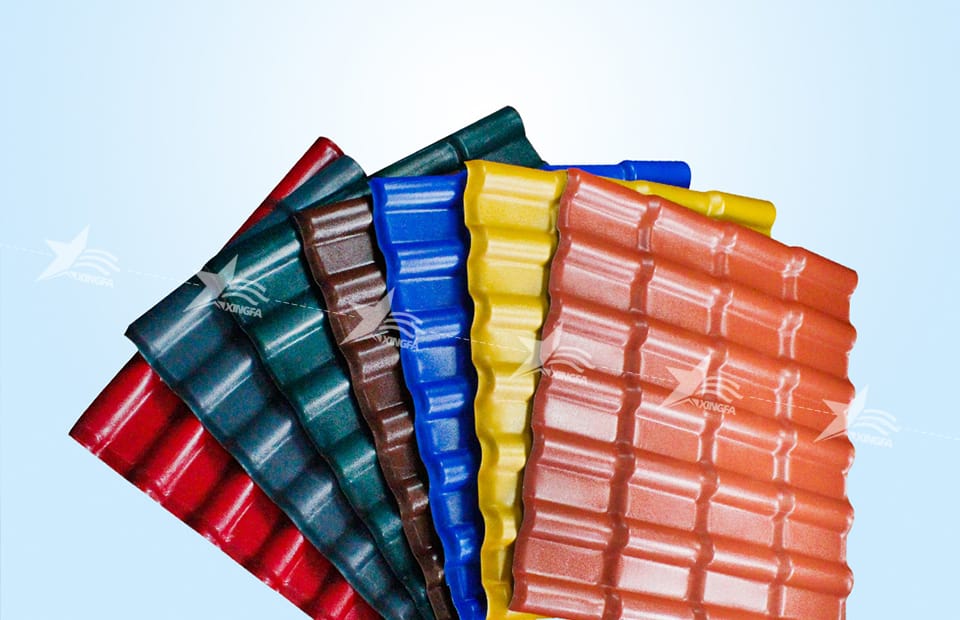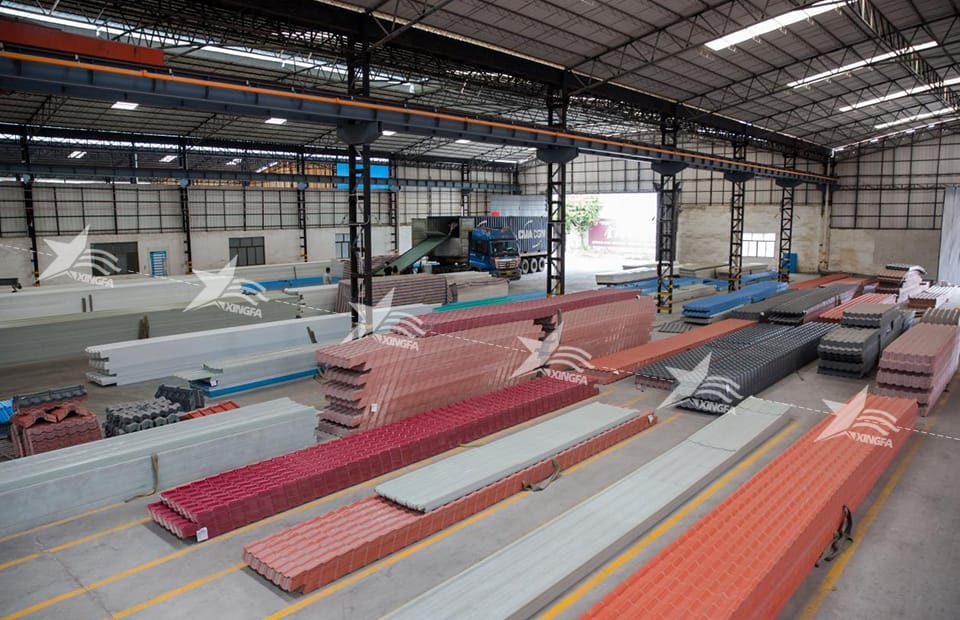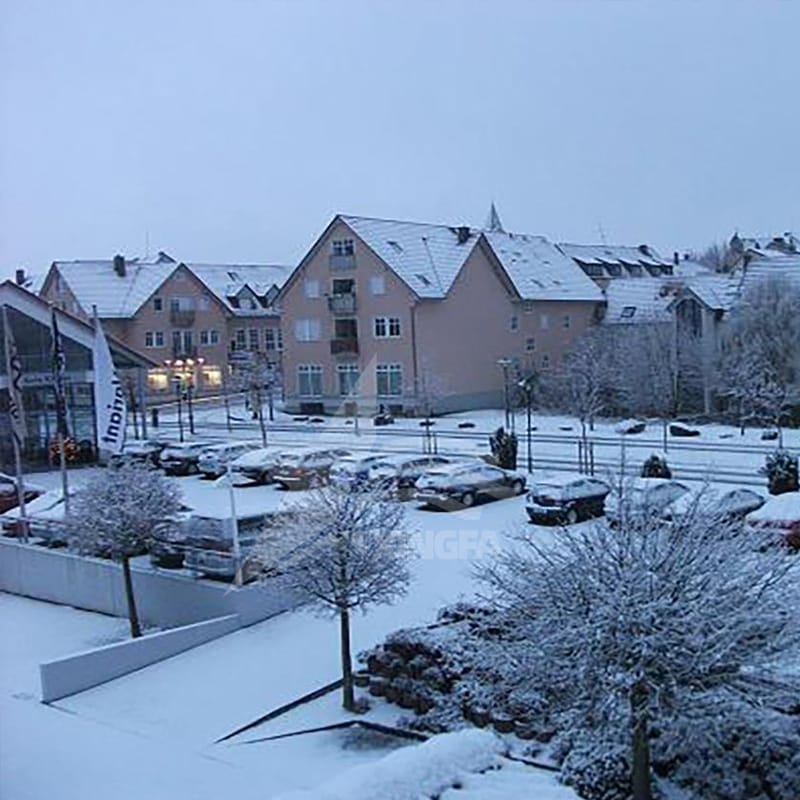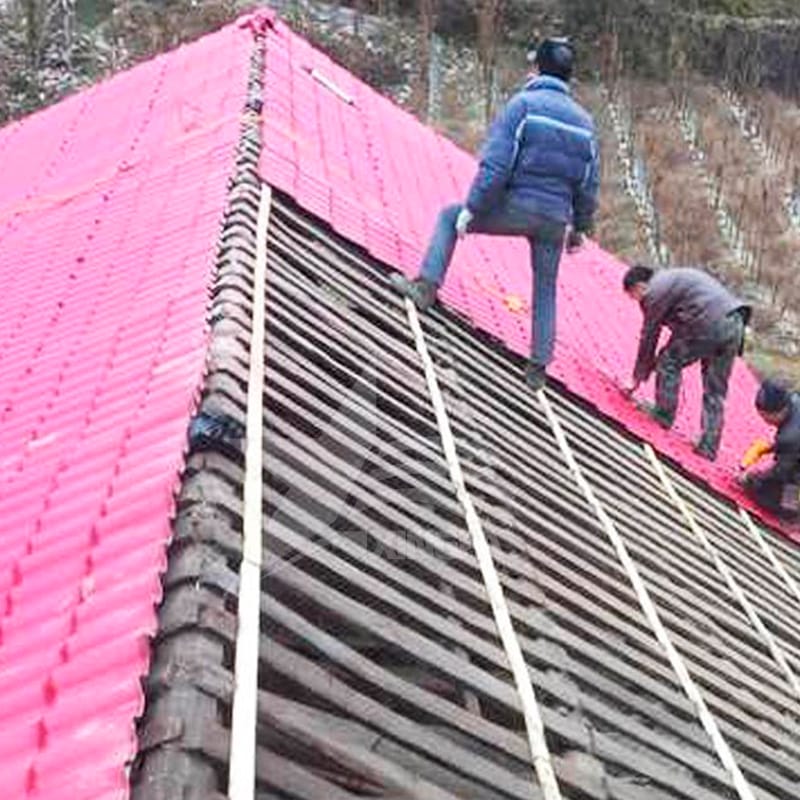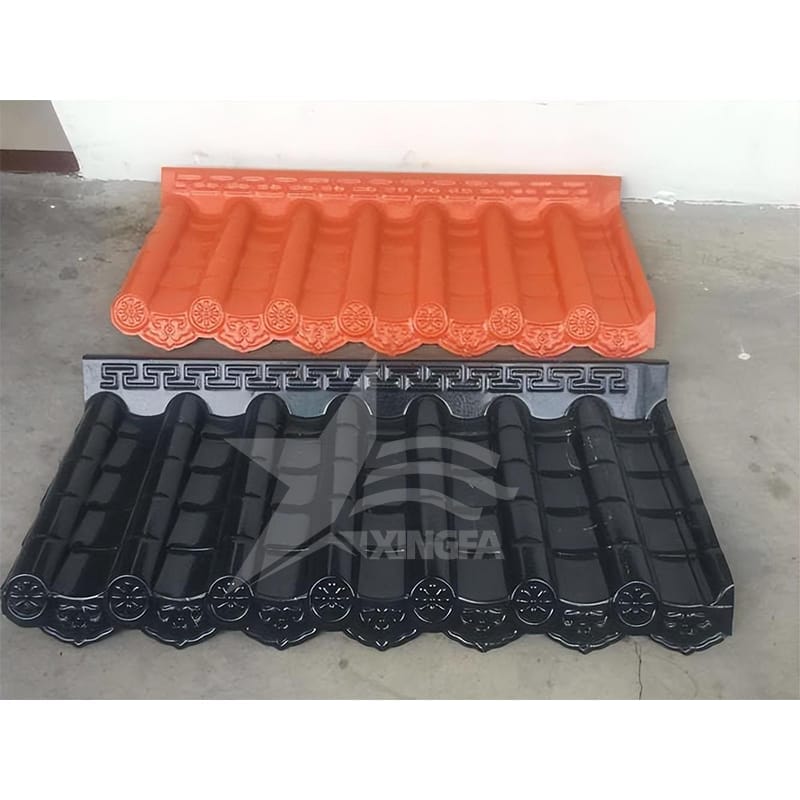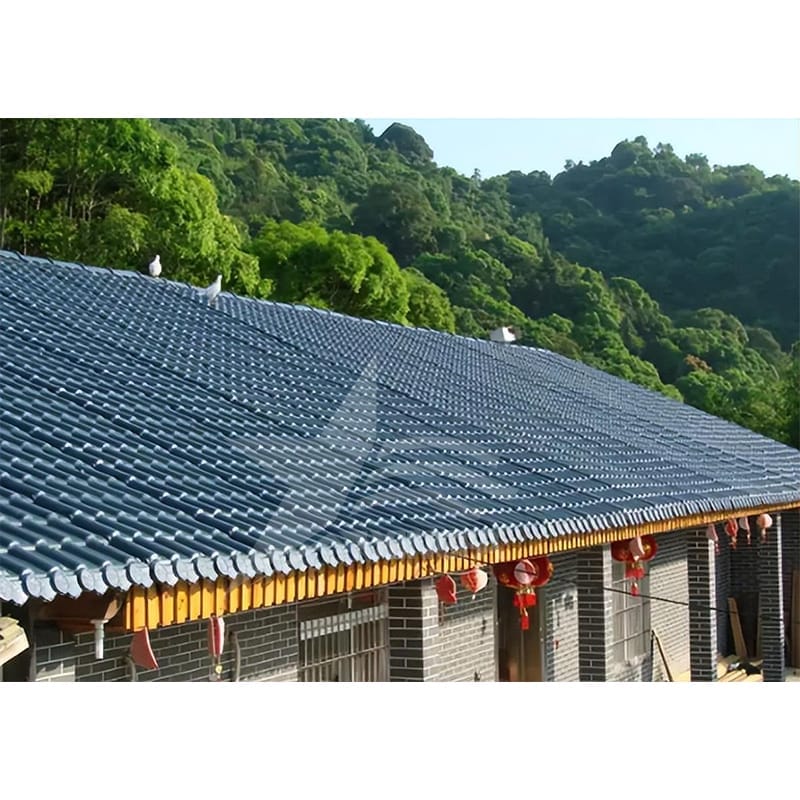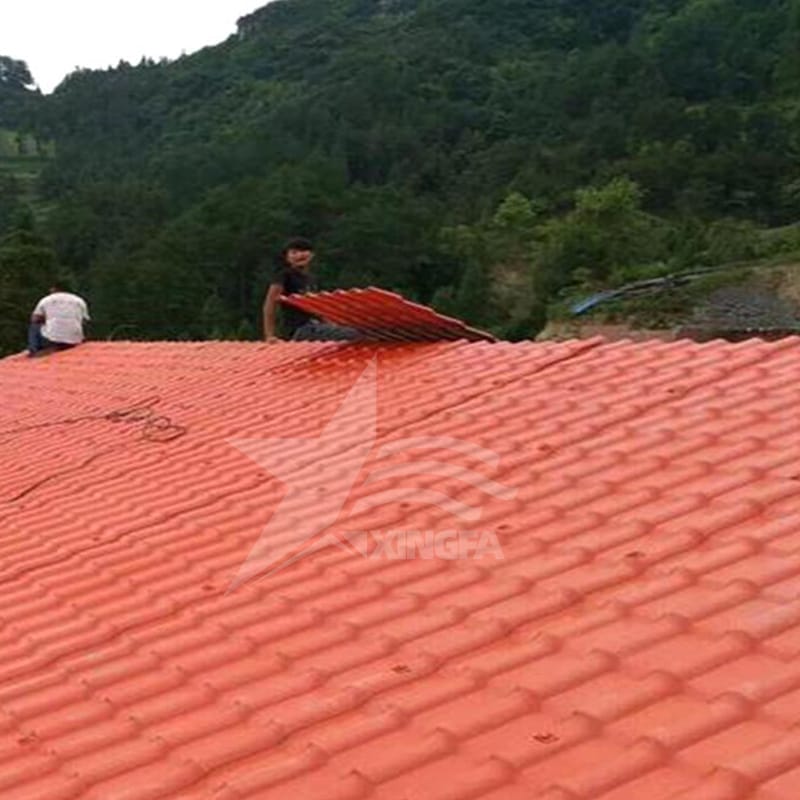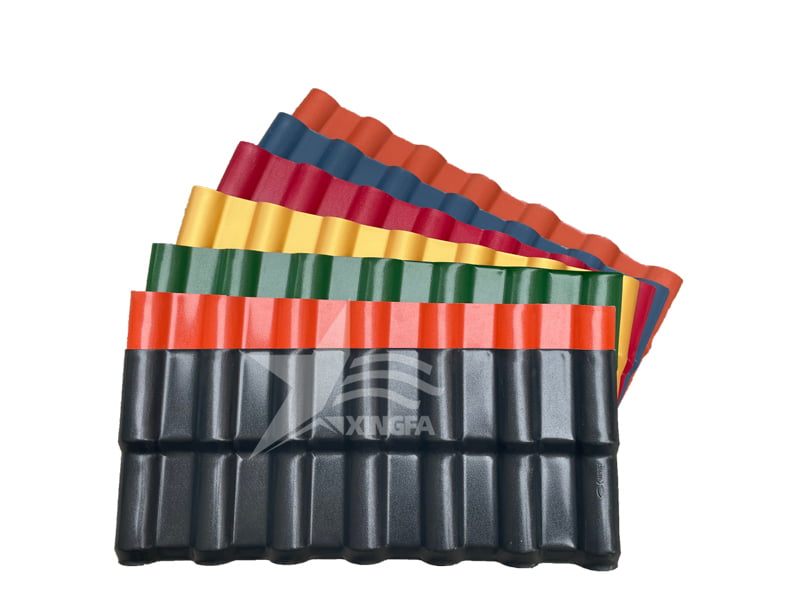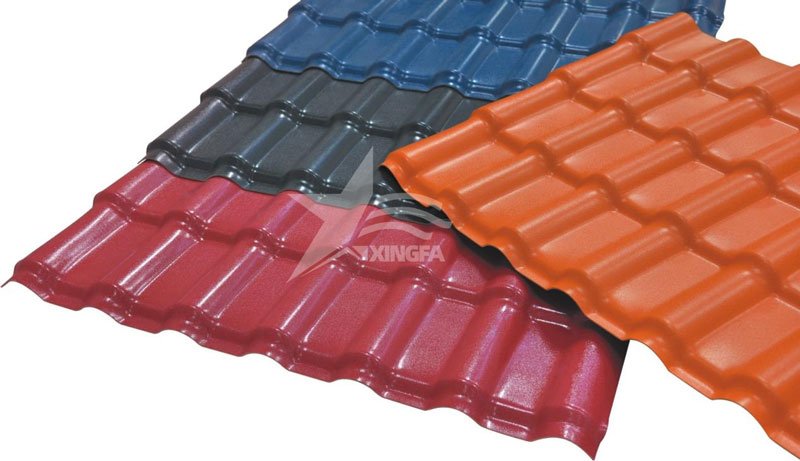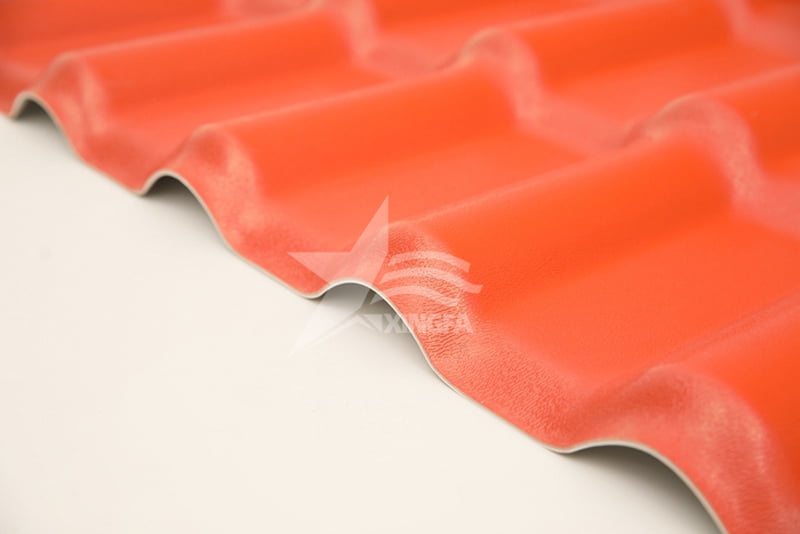Synthetic resin tiles are a material with excellent waterproof and leak-proof properties. In order to fully utilize its advantages, the installation of synthetic resin tiles is also crucial. If the slope of the roof during installation is lower than the standard range, it can easily lead to water accumulation, thereby affecting its waterproofing effectiveness. So, what slope is suitable for the use of synthetic resin tiles on a roof?

Synthetic resin tiles are suitable for installation on roofs with slopes ranging from 20 to 80 degrees. This is because synthetic resin tiles themselves have outstanding waterproofing properties, eliminating the need for an additional waterproofing layer. At the same time, a steeper slope ensures rapid water drainage, preventing water accumulation and leakage issues. If the slope of the house is relatively steep, greater than 45 degrees, when installing synthetic resin tiles, it is recommended to use 2 extra screws per square meter for added stability. In steep slope conditions, securing the tiles with more screws will enhance their stability, making them safer during heavy wind and rain.

Therefore, generally speaking, a steeper roof slope, around 60 degrees, helps water drain quickly to prevent water accumulation. As the slope nears the eaves, it decreases to approximately 30 degrees, allowing the water’s inertia to push it off the tiles, accelerating drainage and reducing the occurrence of leaks by 80%.

Lastly, before constructing a house, it is essential to design the roof slope based on the location and roofing material. Some large synthetic resin tile manufacturers offer free design construction drawings and can provide installation videos or on-site installation guidance.

